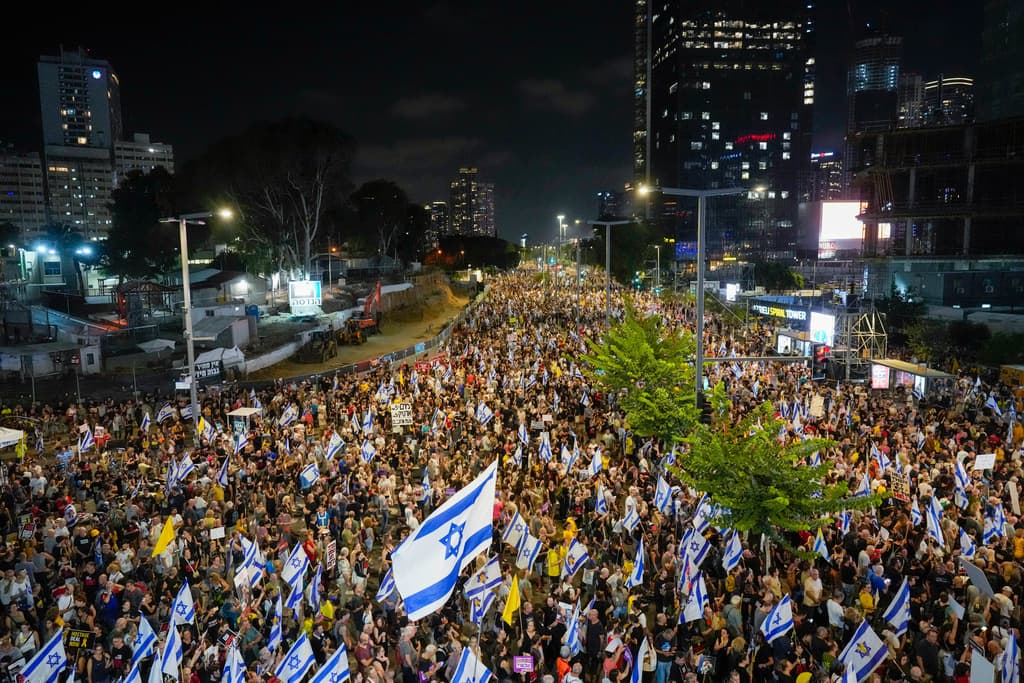500,000 people participated, according to the organizer's estimate, in Saturday evening's demonstration outside the army's headquarters. The demand: that the government enters into an agreement with terrorist-stamped Hamas about a ceasefire to get the hostages home.
If the figure is correct, the demonstration is the largest in the country's history, according to The Times of Israel.
It is obvious that the fact that these six hostages were killed in the way they were has really triggered much more powerful protests, says Isabell Schierenbeck, professor of political science at the Department of Global Studies at the University of Gothenburg.
Murdered Hostages
It was on September 1 that Israel announced that it had found the remains of six murdered people from the hostages in tunnels under Gaza, where all were shot at close range. Netanyahu has described it as "executions" since they were allegedly shot in the back of the head.
Those who protest believe that this clearly shows that they will not get the hostages released by continuing the war, says Schierenbeck.
Anders Persson, associate professor of political science at Linnaeus University, also notes that "the snowball is rolling and getting bigger and bigger". He points out that the protests have strong public support according to opinion polls.
But what can the protest movement do with this popular support? Not much, says Persson.
As long as the government does not seem to be cracking from within, Netanyahu does not need to give in. And despite the protests, there is nothing that indicates this, according to both Persson and Schierenbeck.
It's hard to say what will happen, but I don't think the protests will subside in the near future, and I have a hard time seeing the government fall. With great likelihood, it will continue in the same way, says Isabell Schierenbeck.
US Election
Netanyahu himself has clearly signaled that he will not change his mind and enter into a ceasefire agreement with Hamas, despite usually being mindful of public opinion, says Anders Persson.
Perhaps it's about him wanting to keep his government coalition at all costs, but it could also be about waiting for the US election, where he hopes to get on good terms with the new president, says Persson.
Why spend political capital on a "lame duck" like Biden when you can wait two months and spend it on a winning horse? Then he can change his mind and start turning the page.






